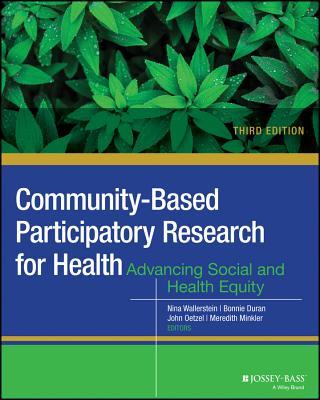The definitive guide to CBPR concepts and practice, updated and expanded
Community-Based Participatory Research for Health: Advancing Health and Social Equity provides a comprehensive reference for this rapidly growing field in participatory and community-engaged research. Hailed as effective by the Centers for Disease Control and Prevention, CBPR and CEnR represent the link between researchers and community and lead to improved public health outcomes.
This book provides practitioner-focused guidance on CBPR and CEnR to help public health professionals, students, and practitioners from multiple other clinical, planning, education, social work, and social science fields to successfully work towards social and health equity.
With a majority of new chapters, the book provides a thorough overview of CBPR history, theories of action and participatory research, emerging trends of knowledge democracy, and promising practices. Drawn from a ten-year research effort, this new material is organized around the CBPR Conceptual Model, illustrating the importance of social context, promising partnering practices, and the added value of community and other stakeholder engagement for intervention development and research design. Partnership evaluation, measures, and outcomes are highlighted, with a revised section on policy outcomes, including global health case studies.
For the first time, this updated edition also includes access to the companion website, featuring lecture slides of conceptual and partnership evaluation-focused chapters, with resources from appendices to help bring CBPR concepts and practices directly into the classroom.
Proven effective year after year, CBPR has become a critically important framework for public health, and this book provides clear reference for all aspects of the practice. Readers will:
- Examine the latest research on CPBR, and incorporate new insights into practice
- Understand the history and theoretical basis of CPBR, and why it has been so effective
- Reflect on critical issues of racism, power, and privilege; trust development; ethical practice within and beyond IRBs; and cultural humility
- Learn new partnership evaluation and collective reflection strategies, including measures and metrics, to enhance their own practice for improved health and social equity outcomes
